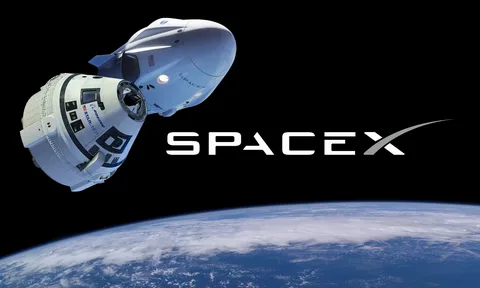Introduction
The landscape of space exploration has undergone a transformative shift with the emergence of private companies taking the lead. SpaceX, founded by entrepreneur Elon Musk in 2002, stands at the forefront of this privatization movement. This article delves into the role of SpaceX and the broader implications of the privatization of space exploration.
-
The Rise of SpaceX
SpaceX, or Space Exploration Technologies Corp., entered the scene with a bold vision: to reduce space transportation costs and enable the colonization of Mars. Since its founding, SpaceX has achieved numerous milestones, including the development of the Falcon and Starship launch vehicles, the Dragon spacecraft, and the deployment of the Starlink satellite constellation.
-
Reusable Rocket Technology
One of SpaceX’s groundbreaking contributions to space exploration is the development of reusable rocket technology. Traditionally, rockets were single-use, with each launch requiring a new vehicle. SpaceX’s Falcon 9 rocket, however, introduced the concept of reusability, significantly lowering launch costs and making space access more economically viable.
-
Commercial Crew Program
In collaboration with NASA, SpaceX has played a pivotal role in the Commercial Crew Program. The Crew Dragon spacecraft, designed and built by SpaceX, became the first commercially built and operated American crew spacecraft to transport astronauts to the International Space Station (ISS). This partnership exemplifies the shift towards private entities actively participating in space missions traditionally led by government agencies.
-
Satellite Deployment and Starlink
SpaceX’s ambitious Starlink project aims to deploy a constellation of satellites to provide global broadband internet coverage. With multiple successful launches, Starlink has demonstrated the potential to revolutionize internet accessibility, especially in underserved and remote areas. This commercial venture showcases the diversification of space-related businesses beyond traditional exploration.
-
Lunar and Mars Exploration Ambitions
Beyond Earth’s orbit, SpaceX has set its sights on the Moon and Mars. The Starship spacecraft, currently in development, is envisioned as a fully reusable spacecraft capable of carrying humans to destinations like the Moon, Mars, and beyond. This ambitious project aligns with SpaceX’s overarching goal of making humanity a multi-planetary species.
-
Implications of Privatization
The privatization of space exploration, exemplified by SpaceX, brings about significant implications. It introduces competition, innovation, and cost-efficiency into an industry traditionally dominated by government space agencies. Private companies, driven by commercial interests, are incentivized to find sustainable and economically viable solutions.
-
Economic Opportunities and Job Creation
SpaceX’s success has generated economic opportunities and job creation, not only within the company but also in the broader space industry. The demand for satellite launches, space tourism, and related services has spurred the growth of a commercial space sector, attracting investments and fostering technological advancements.
-
Collaboration and International Partnerships
While SpaceX operates as a private entity, collaboration remains crucial. Partnerships with NASA, international space agencies, and commercial clients underscore the collaborative nature of modern space exploration. The privatization trend encourages shared efforts, bringing together diverse expertise and resources.
-
Environmental and Regulatory Considerations
As the privatization of space exploration expands, environmental and regulatory considerations come to the forefront. The increasing frequency of rocket launches raises concerns about space debris and its long-term impact on Earth’s orbit. Regulatory frameworks need to evolve to address these challenges while fostering responsible and sustainable space activities.
-
Public Perception and Inspiration
SpaceX’s endeavors capture the public’s imagination, inspiring a new generation of space enthusiasts. Live-streamed rocket launches, successful landings of reusable rockets, and plans for lunar and Mars missions contribute to a sense of excitement and wonder. Privatization brings space exploration closer to the public, fostering a renewed interest in science and technology.
-
Conclusion
In conclusion, SpaceX’s journey exemplifies the transformative impact of privatization on space exploration. From reusable rocket technology to commercial crew missions and ambitious plans for interplanetary travel, SpaceX has reshaped the dynamics of the space industry. As the privatization trend continues, the collaborative efforts of private companies and traditional space agencies are likely to define the future of human exploration beyond Earth.



